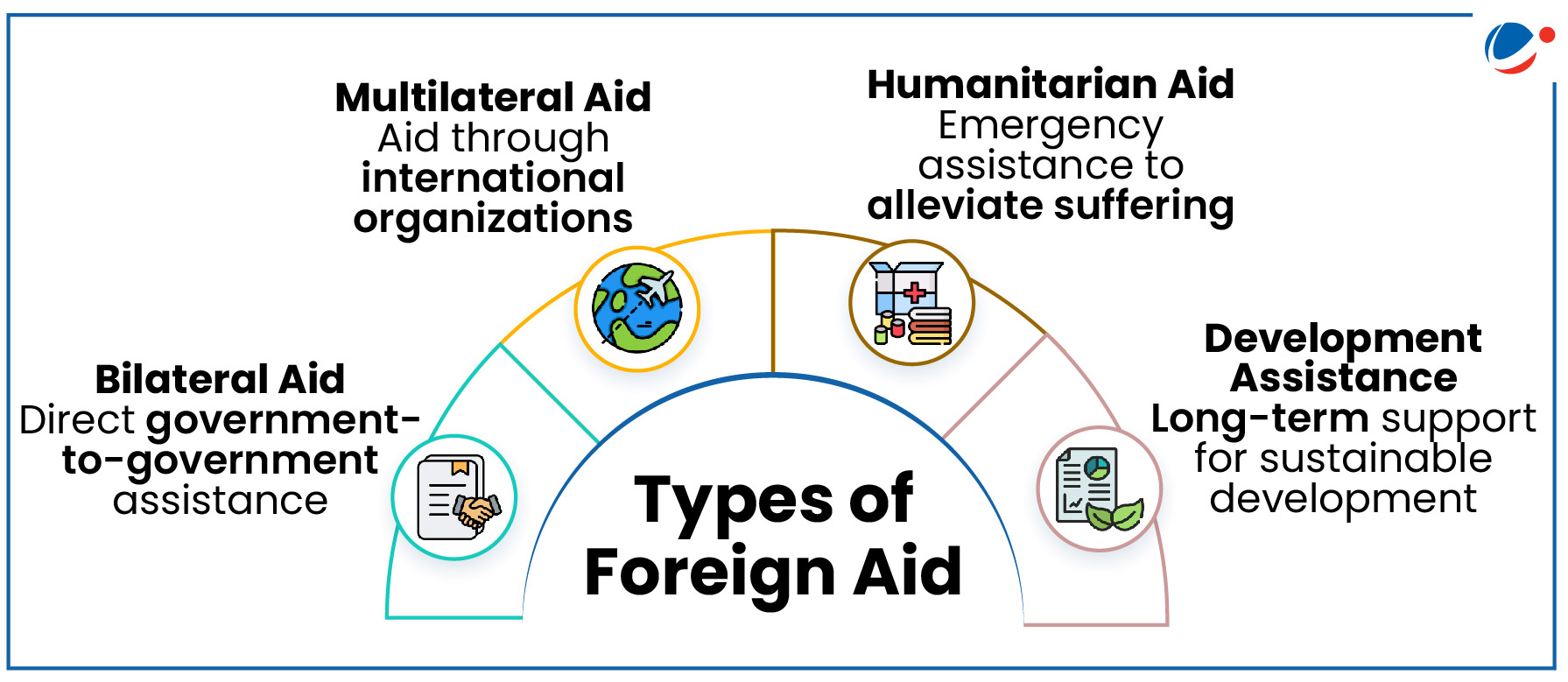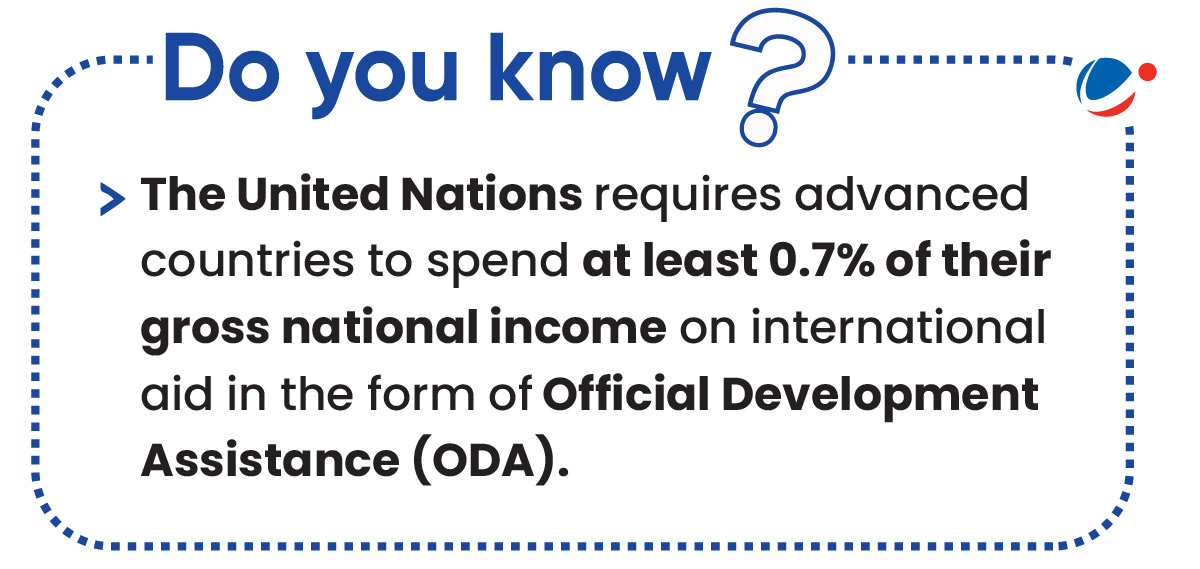Introduction
In recent times, the concept of foreign aid has been subject to intense scrutiny, particularly with the United States' actions to suspend the operations of the United States Agency for International Development (USAID) for 90 days. This move has sparked a broader discussion on the ethical implications of how aid is administered, the motivations behind it, and its real-world impact.
About USAID
|

About Foreign Aid
- It refers to the voluntary transfer of resources—such as money, goods, or services—from one country to another, primarily aimed at benefiting the receiving country or its citizens.

- It can take various forms, including economic, military, and humanitarian aid, and is predominantly provided by developed nations to developing ones.
Rationales for Foreign Aid
- Philosophical and Moral Arguments:
- Utilitarianism (Maximize overall happiness): To give direct aid where it does the most good for the most people.
- Rights-Based (Universal human rights): To ensure rights are met globally.
- Communitarianism (Importance of community and shared values): Should respect and support local culture and community.
- Libertarianism (Individual liberty and free markets): Skeptical of aid; prefers voluntary or emergency aid.
- Cosmopolitanism (Global citizenship): As part of a broader commitment to global equality.
- National Security: The foremost rationale historically has been national security, where aid serves to stabilize regions and prevent hostile influences. This includes military assistance to allies and economic support to maintain friendly governments.
- Economic Development: Aid is also aimed at promoting economic growth in developing nations through infrastructure projects, health care improvements, and educational initiatives. This not only helps recipient countries but can also create new markets for donor countries.
- Humanitarian Concerns: Humanitarian aid addresses immediate crises such as natural disasters or conflicts, focusing on alleviating suffering and supporting recovery efforts.
Ethical Considerations in Contemporary Foreign Aid | |
Positive Dimensions | Negative Dimensions |
|
|
|
|
|
|
|
|
|
|
Way Forward
- Increase transparency in aid allocation, management, and impact evaluation through use of public dashboards and independent audits for accountability.
- Prioritize environmental sustainability in aid projects, focusing on climate resilience, renewable energy, and sustainable agriculture.
- Engage local communities to align aid with cultural contexts, involving local NGOs and leaders in project planning.
- Shift to recipient-led aid, aligning with national goals rather than donor agendas.
- Utilize technology for efficient aid distribution, monitoring, and assessment.
- Emphasize building local capacities for long-term independence over short-term relief.
Check your Ethical AptitudeYou are a senior officer in India's Ministry of External Affairs (MEA), overseeing India's foreign aid initiatives under ITEC and Development Partnership Administration (DPA). A developing country that has been receiving Indian aid for infrastructure, healthcare, and food security is now facing political turmoil, corruption allegations, and human rights violations by the local government. Reports suggest that previous funds were misappropriated, raising concerns over transparency. It is also certain that suspending aid could worsen conditions for vulnerable populations. Finally, withdrawing aid may open space for China's growing influence through BRI loans. Based on the above case study, answer the following questions:
|




